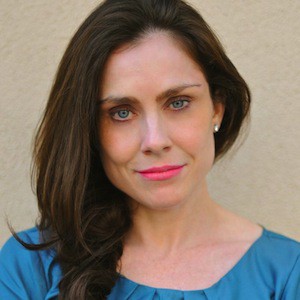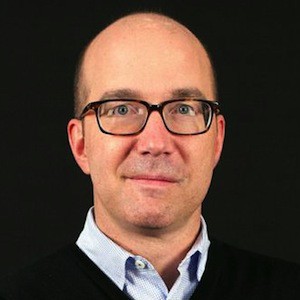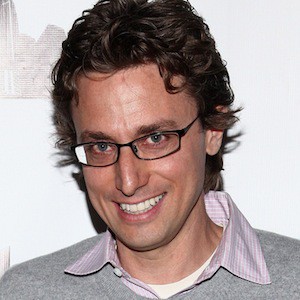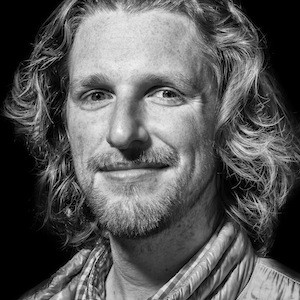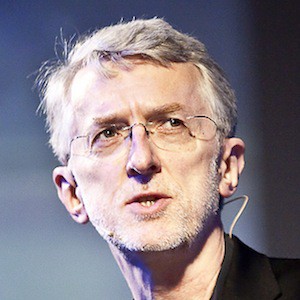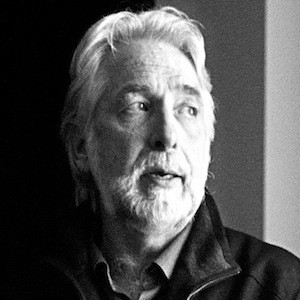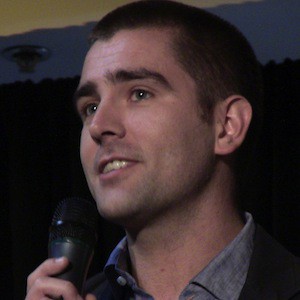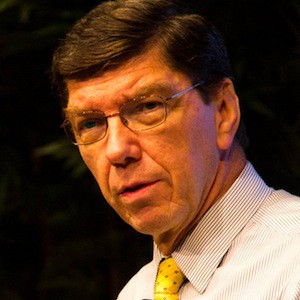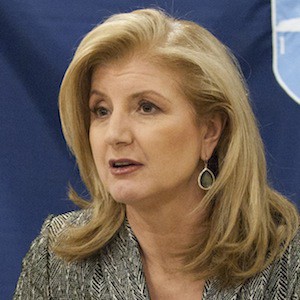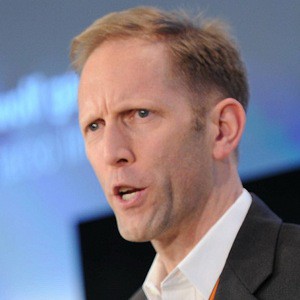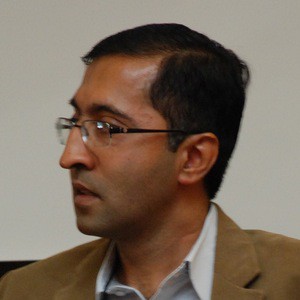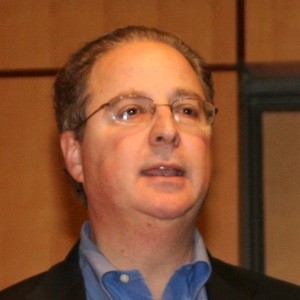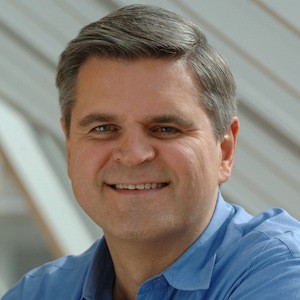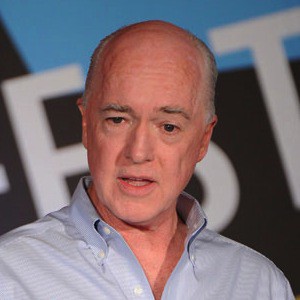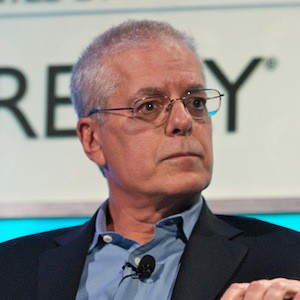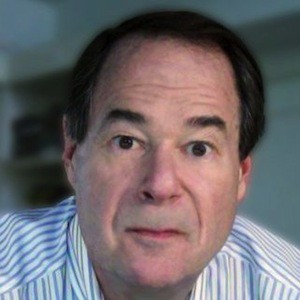Martin Nisenholtz: The standard question that we ask everybody is just to go back and think about the first time that you realized that this thing called the web I guess in your case, it was the web. I don’t think you go much back before then was colliding with media. And what that meant to you.
Dick Costolo: It was actually in one of my second or third, depending on how you count startups, when we did SpyOnIt. I was working with your team, in 2000. The notion behind SpyOnIt was, we will send you web based, email based or SMS alerts when something you care about on the web changes. We first thought that we would set it up for things like, people will want to be notified about stock prices moving or eBay auctions that are about to close, that are under some price they want. Cutesy web commerce type things. What we noticed was, people started to set them up for being alerted about content. For example, I’m a venture capitalist and I want to know when any one of these other VC firms updates their portfolio pages. We started to see more and more people set up those kinds of things. We realized, “Oh, people are starting to use the Internet to track the news on their own.”
There was a migration there, a natural migration for me and my SpyOnIt co founders, from there to Feedburner, which became the, “Now, I don’t want to be alerted about it anymore, I want to start to have a feed come to me about it.” You can trace the progression from SpyOnIt to Feedburner, to Twitter even thought Twitter wasn’t something I founded.
Martin: Tell me about Feedburner a little, would you?
Dick: Sure. The notion behind Feedburner was, if media and content is starting to be something I want to know about as fast as it happens, in the early 2000’s, people would say, “I get up every morning and I look at these nine sites.” It started to become obvious to us, the founders of Feedburner, that there were getting to be too many things you have to go check in the morning. Remember there were these, they called them, I don’t know, My Yahoo. These half attempts at, “Assemble your home page and we’ll pull in all these widgets. It’ll tell you what’s going on.” But they weren’t really very good, frankly. With the invention, if you will, of syndication, RSS, we realized, “Oh, this is the future. What you’ll do is you’ll subscribe to a bunch of RSS feeds, and they will be brought to you and delivered to you. You’ll only have to go to this one thing to keep track, in real time, of the 50 things you want to be interested in.”
The idea behind FeedBurner was, in this world where all content will be syndicated and what you’ll catch up with in the morning is a feed instead of your 90 different sources you go to, somebody needs to sit between the publishers and the subscribers and create some sort of frictionless way of making sure this stuff gets shared easily and is trackable and traceable.
The content providers are still going to need to make money, so they’ll want to put ads in their feed and on and on and on. That was the idea behind FeedBurner, and we were right.
John Huey: What year was that?
Dick: We started FeedBurner right at the very end of 2003. We had our product in the market in 2004.
John: This is before Facebook.
Dick: Yes, that’s right. It was based on the syndication standard, RSS, that Google Reader and some of these other things were based on.
Martin: Then Google acquired you, right?
Dick: Mm hmm. In the summer of 2007, they acquired us, again on the hypothesis that as content is syndicated and more and more people are getting content in syndication instead of going to XYZ.com, it’s going to be important to be a part of that world of syndication. A publisher clearinghouse, if you will.
Martin: Dick, what did you learn about content, and maybe even if you could, specifically about news content during this era of SpyOnIt and FeedBurner? Were there any takeaways from that period of time? Even into Google and Google Reader.
Dick: One of the things that became evident to us was…It’s interesting, I started to see it first around technology journalism in my RSS feeds. I would have my six or seven technology feeds, probably more, that would come into my reader. You started to notice that you saw a lot of the same kinds of articles with the same kind of content from eight or nine different sources, with maybe one or two journalists going into much more detail. It became clear to us at that point that this is going to have profound implications for news companies because we no long…The “Detroit News,” “Detroit Free Press,” “New York Times,” “Washington Post,” and 90 other papers aren’t going to need a Jerusalem correspondent because, generally speaking, it’s all going to be the same stuff with the occasional deep, in depth analysis.
I’m oversimplifying, of course, but that started to become obvious when you would see these things all come into your feed at the same time and realize. In the future, which was upon us, since I’m getting these things from multiple sources, it’s not going to be the case that I need to have eight journalists covering the same thing anymore.
You’ve seen the finalization, if you will, of all that with things like BuzzFeed and the likes of course. The massive simplification and synthesis of what’s going on without a lot of detailed analysis as the opposite side of the spectrum of a Washington Post or New York Times or “Economist,” which you still go to for the, “Hey, I want to read the 14 pages about this.”
Martin: I just want to do a little sidebar now because I know that you started your career as a comedian, but you were a computer science major at the University of Michigan, right?
Dick: That’s correct.
Martin: So now you arrive at Google…
John: Wait a minute, he’s a comedian?
Dick: I’m actually giving the commencement address at Michigan next weekend, so I’ll tell you the four second version, which is that the computer science department at Michigan, at the time, was in the Literature, Science and the Arts school. My senior year, you know you had to have your N number of credits to graduate. I had to have so many arts credits, because I was in the arts school. I thought, “Gosh, what’s something I could start taking where I wouldn’t have a lot of homework, so I can work on my operating system stuff.”
I took this theater acting class. I took another one my second semester, senior year. At that point, I had gotten the bug and decided, “I’m going to go to Chicago and try to get into Second City and do improvisational comedy, instead of taking one of these CS jobs.” So I did that.
John: You could have been Tina Fey.
Dick: I know those guys. Steve Carrell and I were in the same group when we first got to Chicago there. I saw Steve at a fundraiser for the Lucille Packard Children’s Hospital out here, last year. We were looking at a photo of our group, from 1986, I think, in Chicago. He patted me on the back and said, “I’m really sorry it didn’t work out for you.” [laughter]
John: You just won the best sidebar story in our interviews. That’s a sidebar.
Martin: Dick, the reason I brought it up is because you created this wonderfully funny video at Google. Obviously, Google’s a very material part of the story, since they’ve taken roughly half of the advertising business, online. What was it about the Google culture that didn’t work for you? Or maybe it did work, but was just kind of interesting and funny, in a way?
Dick: I could talk about this for an hour, in and of itself. There were lots of things about the Google culture that I loved. If I had to start, just name two, one of the things that I loved about the Google culture that I’ve tried to bring to Twitter is…Larry, Sergey and lots of other folks at Google are really great, but I’m using the past tense since I’m describing when I was there… I always observed they were really great at questioning why something was the way it was. Even down to everything. Travel policies. “Wait, why is the travel policy this way? Why can’t it be a different way?” Your first instinct, sometimes, is to think, “OK, let’s not over intellectualize everything.” But it really worked. It was smart.
I thought it resulted in lots of interesting new ways of approaching problems. Larry would ask questions like, “Why are there so many plugs?” You might think, “Because we have to plug the electricity into the wall.” But he takes it to the nth degree and you start to think, “Yeah, why are there so many plugs?” I thought that was great and people did that throughout the company.
The second thing about the Google culture that was fantastic that I’ve also brought over here was, everything that everybody does, on a quarterly basis, is measured against some quantifiable metric and you’re held accountable to that metric.
You don’t generally have people wandering around, not accountable to anything or not measuring what they’re doing. That meant, any time something would launch, you would have a set of metrics that you could look at on a dashboard, that would tell you exactly how well the launch was doing, against what you said you were going to try to do. Those are things that are great and I’ve certainly brought over here.
There wasn’t particularly something about the culture that didn’t work for me, so much as it was just, I wanted to be in an environment where I was more in control of my own destiny. Google’s a big company. I’d been used to being the CEO or running the company.
John: Can we shift gears here and go directly to Twitter and journalism, Twitter and the news? This is going to be a fairly long winded question. But there are three things that have happened to us here, at Harvard, since we’ve been here, that fuel this question. One, Michael Sippey, who was CTO and social media guy for the Obama campaign, basically, has told us from day one, that all he really worried about, during the last campaign, was the Twitter trending. Everything else was off his radar.
Secondly, we have a CNN correspondent here, Peter Hamby, who covered the campaign. He’s writing a paper, actually, about how meaningless the campaign — the “Boys on the Bus” is — because everything is done on Twitter and everyone gets their news on Twitter. They’re not just talking social media. They say Twitter specifically.
Finally, last weekend, we’re here and the whole city goes in lockdown. There’s this (Boston Marathon bombing) terrorist incident. Everyone is still talking about the Twitter coverage, good, bad.
Can you help us understand how Twitter became such an integral part of news coverage and how much of it was just viral, people adapting to its abilities? How much of it was actually designed by people at Twitter and encouraged by people at Twitter?
Dick: I’m going to answer your last question first and then go back and take a longer run at the first part of your question. The answer to your second question is, it has absolutely been the case that our users have adapted to the format and made it the platform it is today. As opposed to, we had this amazing idea that we had invented the future of the way real time coverage would happen. That was all our users. In fact, so many things about the product were initiated and created by our users, at replies and hashtags and everything else. That’s the answer to the second piece.
The answer to the first piece is, my perspective is that we’re building this global town square. What I mean by that is, if you went back to Ancient Greece, the way that news and information was passed around was, you went to the Agora after lunch in the town square.
There was this unfiltered, multi directional exchange of information. I might go into the Agora and say to Martin, “Hey, my aunt died.” Martin might say, “Euripides’ goat passed away.” We would exchange some information.
By the way, the politicians were there. The musicians were there, et cetera. There were this multi directional, unfiltered exchange of information, which was interesting in all sorts of ways.
With that advent of technologies that made it easier to distribute news, geographically and with less friction in time, starting with the printing press, then radio, broadcast television, cable, on and on. It was always in service to a broader geographic distribution and less delay in time but at the expense of losing the multi directional aspect of it. It became more and more one way.
And losing the unfiltered aspect of it. It became more and more here’s what’s going on from the very few of us to the very, very many of you.
In fact, if you go back to the elect…talking about the campaign. If you go back to the campaign eight years ago, there would be a debate. Then CNN would say, “Now, we’re going to go to Frank Luntz, who’s back here in the room with six people, and Frank’s going to tell you exactly what to think or what everyone in the room thinks about happened tonight.” But it wasn’t. It’s Frank telling you what he thought happened tonight and what these six people said.
Along comes Twitter, and it’s got all the benefits of broadcast distribution. It’s got immediacy. The information is transmitted around the world in absolutely real time. It’s got obviously the breadth of geographic distribution but all the benefits of the agora. It’s multidirectional. The President’s talking to me, but I’m talking back to the President. CNN is broadcasting the debate, and I’m saying, “I don’t think he answered that question.”
It’s certainly unfiltered. You don’t have to go to the broadcaster any more, during the basketball game or after the basketball game. You go to LeBron, and LeBron goes to you.
That has been why we’re seeing the campaign unfold on Twitter. There’s no more, “Now let’s go to Frank Luntz to see what people thought about that question 20 minutes ago.” Because as the question happens, people are typing into Twitter, “I thought he dodged that question.” We already all know what we all thought about the answer.
Martin: One of the things that has been a persistent theme during a lot of our interviews. It’s kind of a follow up to this question, has been that the guys out in your neck of the woods, and to some extent, some of the folks in New York, like the Tumblr folks, tend to be engineers. They tend to start as folks with engineering backgrounds in the leadership of these companies. You mentioned Larry and Sergey, engineers. They create platforms that are extremely scalable. To your point, it’s the users that determine, to a very large extent, how they’re used. The content folks are run by traditional media professionals, whether they’re journalists or not. Do you think, let’s just say, the disparity between value, whether it’s economic value or the notion of how extensible something is in the future, is at root an engineering versus a media mentality?
In other words, journalism, many people have said, is in quite a crisis right now. Is that crisis a result in some part, of not having an engineering mentality underneath of it?
Dick: No. You can come at this from either side. Maybe I’ll come at it from the journalism side. One of the challenges is that news organizations, perhaps, have been trying to economically match the money that the technology distributors are making from real time distributions of alerts and news. “This just happened in Boston.”
Dick: The benefit that the journalists have over the technologists is their ability to do these in depth, content rich analyses and essays around things. Instead, they’ve tried to optimize, in many cases, for “We have to be the fastest and the first and the best distributors.” But the technology’s always going to be the fastest and the first and the best distributors. The technologists are going to be particularly bad at the in depth analysis and the content and the thoughtful reporting. There’s that real, tremendous value in the in depth analysis and thoughtful reporting that perhaps…I’m not running a news organization. There haven’t been enough attempts to monetize that as opposed to trying to compete with the technologists at being fast.
John: I’ve been surprised, in the wake of this bombing in Boston and the manhunt and all that. I’ve been surprised at the way that so many people in journalism have talked about Twitter as if it’s a person or as if it’s a news organization or as if it’s done something wrong. Am I missing something? I think of Twitter as a tool that people are using.
Dick: No, I agree with you. It gets back to this notion of the global town square, and some people are interpreting that as it’s another broadcaster. The reality is that it’s just a tool that’s allowing everybody to be a broadcaster. I do think it’s that global town square aspect to it that is creating this dissonance. For example, you’ve got these government officials in a number of countries in which we operate who will send us these notices saying, “Hey, Twitter is talking about the fact that this government official did so and so, but there’s an injunction preventing media companies in our country from talking about that.”
[laughs] We’re not the ones broadcasting it. You can tell everyone in your country they can’t say this, but…
John: The second part of this is there’s a guy up here that I met at the Niemen Foundation who’s a computer scientist. He was one of the first employees at YouTube, and he, for some reason, went to journalism school after he did all this. He’s now trying to develop a tool, I think he calls it Keeper, which is a tool that journalists could use to help navigate, filter their Twitter feeds. Sort of like what happened to Yahoo and what happened to Google, there are people doing this now with Twitter. Is that a good thing? Is that inevitable?
Dick: That’s great. I’m hopeful that, and I think it will be the case that…Just one minute. We think of ourselves as very, very complementary to what other media companies are doing in a way that maybe other companies maybe previously haven’t. We want to provide and foster the ability for the ecosystem to create tools that journalists can use to do better reporting on what’s going on in Syria or some research they’re doing. In fact, I had a television producer talk to me, quite a while ago now, about using Twitter to research where Mubarak had hidden many of his assets. Twitter was turning out to be the best place to research that because these professors across North Africa and Egypt were using it to talk to each other about where those assets were hidden.
We want to provide those kinds of filters and tool, and we’re encouraging third parties to build them as well and hopefully providing them the resources to do so.
Martin: Last question, Dick. Over the weekend, you mentioned the town square. Obviously, if you’re in a town square and some wacko stands up and says something, you can see him. The AP was hacked, and for a little bit of time on Monday, created a significant problem. What do you think of that? How do you react to that? How does that fit into the town square metaphor?
Dick: I’m glad you asked me that. There are two aspects to the town square metaphor that we take very, very seriously, and one of them is that some wacko stands up wearing the Associated Press reporter’s hat and badge and how do you make it easier for everyone in the square to recognize that account’s been hacked or it’s not real. One, we have to do a better job here of helping these organizations understand how to create secure identities on our platform. That’s everything from strong passwords to two factor authentication and on and on and on. There are lots of actually other, even more interesting ideas in that realm, and we’re working on that and with those organizations. We want to do that. We have to do that.
The second thing about the global town square is you want to encourage and allow political speech. Yet there are many, many countries in the world that it’s not OK to walk into the town square and put up a flyer that says the president’s a jerk. In fact, not only is it not OK, you’ll be hunted down and punished for it.
We have to balance our desire to facilitate anonymity and pseudonyms as identities on Twitter. One of the Tunisian folks during the revolution in Tunisia, his Twitter ID is Slim404. If he had used his real name, he would have been tracked down. At the same time, when people can hide behind anonymity, they tend to say more disgusting and revolting things because nobody’s going to find out who I am and come get me for this, so I can just attack and maybe even physically threaten these people.
We have to provide the right kinds of tools and capabilities in the platform to make it easier to achieve that balance and strike that balance. That’s a really hard problem, but it’s something we take seriously and actually have a bunch of people working on.

